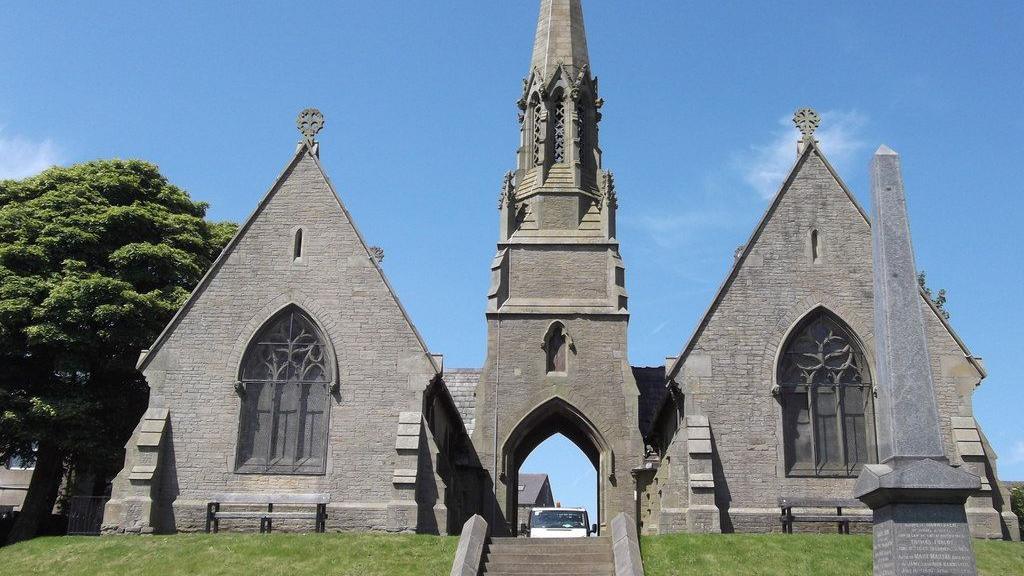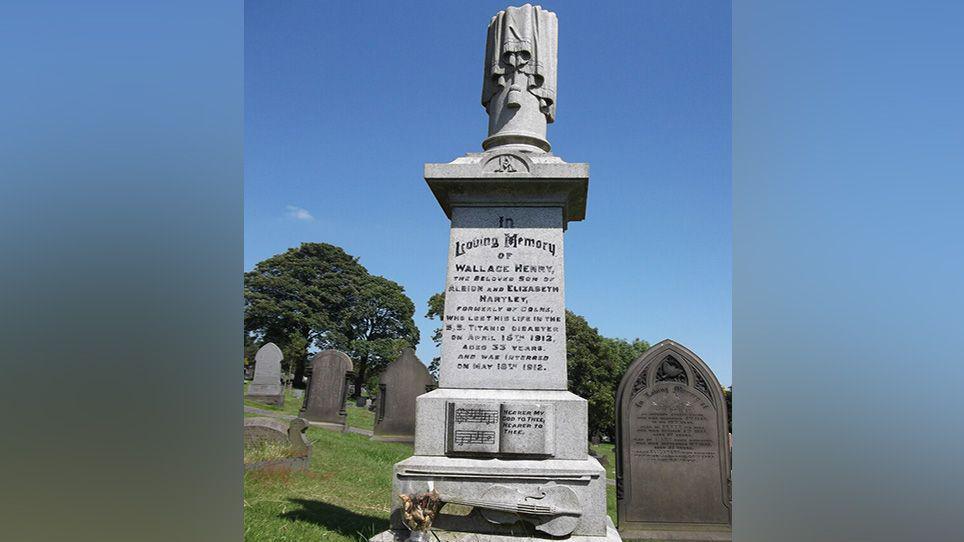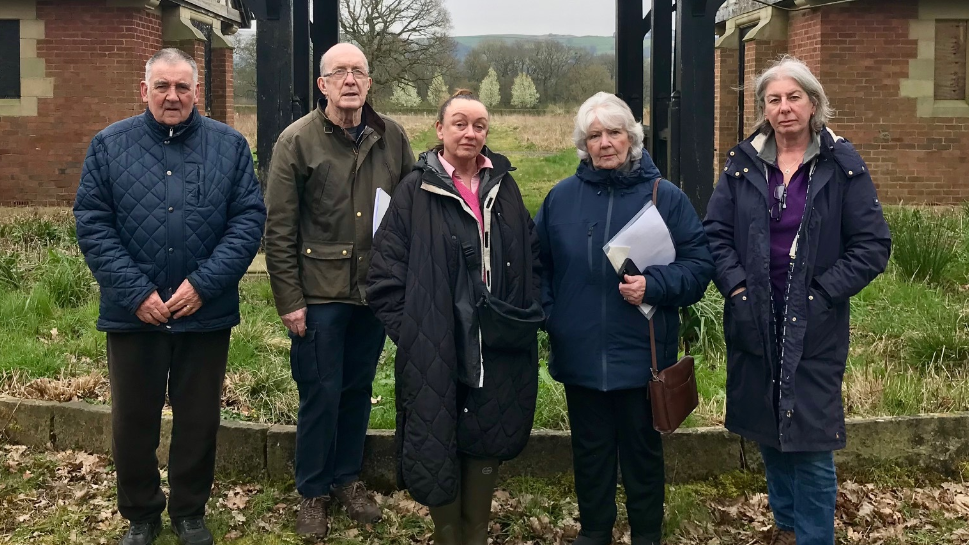Plans revealed for town's new conservation area

Colne Cemetery is a key focal point of the proposals
- Published
Part of an east Lancashire town could be classed as a conservation area due to its "historical significance" under recommendations being looked at by councillors.
Colne landmarks, houses, shops fronts, building design and materials in the Keighly Road area are among the many considerations.
Pendle Council's Colne area committee is due to discuss it later.
Planning officers and external consultants are recommending the council to consult local people informally about the idea with the results then reported back to the committee and be incorporated into a formal recommendation to the council's leading executive.

Grade II listed Wallace Hartley's grave is a key part of the proposals
A report for Colne area councillors said: "An appraisal has been undertaken to assess the historic value of the area around Keighley Road.
"The appraisal concludes the area has historic value and that it would qualify for designation as a conservation area due to its historical significance."
A separate draft report included photographs of houses, shops, sites and views of interest as well as sites or features seen as negative to conservation area ambitions.
The draft report stated: "This provides an introduction to the proposed conservation area and outlines the special historic and architectural interest and the area's development from an agricultural settlement into a middle-class residential district."
The report said the special character of Keighley Road included:
18th Century agricultural homes and buildings
Fine middle-class terraced houses from the late Victorian and Edwardian era which typify the main evolution of the area, the Victorian suburban expansion and the wish to move away from the town centre
Smaller mill workers' terraced housing at Mabel and Grosvenor Street with setted streets and services road at the back
Green and open space provided by Colne Cemetery, which is central to the proposed conservation area and a key focal point. It contains the only Grade II listed structure, the grave of Wallace Hartley, the band leader who continued playing as the Titanic sank
Modern housing by The Peter Birtwistle Trust which is the legacy of Peter Birtwistle, a millionaire jeweller who emigrated from the UK to Canada but left his entire fortune to provide housing for people in his home-town of Colne when he died in 1927.
Listen to the best of BBC Radio Lancashire on Sounds and follow BBC Lancashire on Facebook, external, X, external and Instagram, external. You can also send story ideas to northwest.newsonline@bbc.co.uk, external
Related topics
- Published15 April 2012
- Published4 April 2024

- Published17 June 2015